I have just returned to Kabul from an eight-day mission in Herat and am preparing to go on leave on Tuesday, April 13. I am happy to be going home to my wonderful place in the Oregon high desert and to be with my wife, the doggies, ponies and kitties. I will be bringing four small carpets for our new wood laminate floors and I can't wait to see how they look. The biggest is 4x6 and the others are all about 3 x 5. Tony helped me pick two of them and explained what made them exceptional, which is the way they are woven and the tightness and size of the weave. Also, when the design is varied and not repetitious this makes them more valuable because it shows that they would have taken a longer time to make. One was made by a weaver from Baluchistan (a province in Iran), one is from Iran (a true Persian) and two are native Afghan.
This past mission to Herat was really good. Tony is home on leave, so Victor and I were together, along with our interpreters, Mobeen and Fahim, and we taught some good classes to the Afghan Border Police NCO Academy cadets and helped plan and lead a humanitarian assistance mission to the Kohsan District Center, a large village about twenty kilometers from Islam Qala and the Iranian border. The Kohsan District actually has about seventy-five kilometers of border shared with Iran, so growing poppy, processing opium and smuggling has historically been a problem in Kohsan. Thanks to employment projects funded by the UN Office of Drugs and Crime Alternative Livelihoods program, and other UN agencies, poppy is now almost non-existent in Kohsan.
These projects include planting saplings which will grow into trees large enough to act as a wind-break from the fierce winds that blow in from the north, across the desert, and last about four months virtually sandblasting anything that gets in its path. So far, 40,000 trees have been planted with another 35,000 to be planted this year. Another project involves 200 men clearing sand and other debris from the irrigation canals. This has allowed better water flow and more water getting to the farmers' fields. A third project is getting former poppy growers to grown saffron which, as you know, sells for a good money. Last year, they grew 18 tons and this year hope to harvest 40 tons.
On the way to Kohsan on the second day of the mission, I was able to see a sight that was simply amazing, beautiful and has been occurring for thousands of years. I witnessed the annual migration of Kuchi herdsmen and their families from Herat Province to Farah Province, where the grazing is better during the summer months. They were in an orderly and extremely long column which included, I'm guessing, hundreds of camels, their herds of sheep and goats and their families. The women and children were dressed in beautiful native clothing and many of them were wearing handcrafted jewelry of gold and precious stones. It was just an unbelievable sight and, as you can see, I took some equally unbelievable pictures. The pet turkey riding on the camel was one of the funniest things I have ever seen but, in the context of Afghanistan and the Kuchi, seemed quite natural. The camels move in a graceful lope and made a lot of noise. When I took a picture of one of the herders, he wanted me to get it out of the camera so he could have a copy. Fahim explained the problem with this in a digital camera, so he settled for a bottle of spring water and was quite happy.
On Sunday, April 4, I taught a class in "Community Policing" to forty-six cadets in the ABP NCO Academy. How weird is that for an ex-public defender and capital defense investigator? It was a subject they had never heard of, let alone being asked to put this theory into practice in their patrols in the communities they serve. My translator, Mobeen, had translated the main points of my PowerPoint presentation into Dari, the language spoken by the cadets, which added to the ability of the cadets to retain what they learned. One of the points I made included the biblical proverb from Matthew, "Do unto others as you would have them do unto you." I had this phrase translated into Dari and gave a copy to each cadet. I then quoted, first from the Quran, a phrase that says, “O you who have believed, be persistently standing firm in justice,” which has been interpreted to mean that “there should be justice and equity when dealing with people.” Then, I was able to follow this up with a quote from the Prophet, Muhammad, which is in the Sunnah, a book on the way of life prescribed as normative for Muslims on the basis of his teachings and interpretations of the Quran: "A man should do for the people what he likes them to do for him."
My interpreter told me after the class that the students were very impressed with the fact that I had taken the time to look for something from their culture that they would understand and accept. Most importantly, I talked with the cadets about Article 4 of the Afghanistan Constitution which states that all people in Afghanistan are equal--men, women, all tribes, all religions and all ethnic groups. I am hoping this struck a chord with most of them, especially since we have two women NCO cadets in the class (they wear their ABP uniforms under their birkas and their faces are exposed). The cadets went with us on the humanitarian assistance mission so that they could see what happens when you provide people with needed assistance, in this case, supplies of wheat, dried peas, rice, beans and cooking oil. I know it doesn’t sound that nutritious, but these men and boys who work on the Kohsan projects were grateful. Many of them carried off the large bags on their backs, in their wheelbarrows and the backs of their little donkeys. There was a mother donkey with her new colt. The pictures I got took awhile because the colt was very shy and kept hiding under his mom. You can see the wait was worth it.
I attended a meeting in the District Administrator's office, along with Fahim and Waheed Fayeed, the UNODC Alternatives Livelihood coordinator for Herat Province. The District Director for the Ministry of Narcotics was there, along with representatives from the local ABP post, the Afghan National Police and the Afghan Customs Police from Islam Qala, as well as several of the village elders. The discussion centered entirely on the needs of the citizens of the Kohsan District and providing services and jobs that would stop them from returning to growing poppy and being involved in the narcotics trade. I made the point that J55 was training the ABP NCO cadets in areas that would be useful to the people of Kohsan and that they had recently been taught “Community Policing” and how important that was for helping the people find ways to resolve various problems in the community, including criminal activity related to drugs. I said that this was why the 46 cadets had come on Monday so that they could see, first hand, what helping people with simple items like flour, dried peas and cooking oil could accomplish. I thanked the District Administrator for the opportunity to meet with him and the others in the room and the joining with them and the other UN organizations involved in participating in the HA mission.
The District Administrator thanked our organization for coming back to Kohsan to help the people. Waheed briefed the participants on projects being done with Alternative Livelihoods' assistance and said that UNODC would continue to assist the people of Kohsan. The District Administrator stated that he and his people will continue to need international assistance so that his people would not go back to growing poppy. He said that it was very important to “get young people to learn how to farm other crops and to teach them not to use drugs and about addiction.” He wants all of us in the UN to “talk to the people; ask them to tell you about their problems, the corruption they know about and to tell you what they need.” The District Administrator told me that “Kohsan has 75 kilometers of border with Iran” and that “we will cooperate with the ABP and UNODC to solve the problems on the border.”
The District Director of the Ministry of Counter Narcotics said it is a very tough job to stop drugs. He said that they continue to need international support to continue having projects so that people won’t grow poppy and that the Afghan government is giving them “a lot of pressure” to come up with options. He said that jobs are a major issue and that approximately 200 people have left Kohsan and gone to Ghor, Badghis and Farah Provinces to process opium for money. He said that jobs for young people were a particularly important issue because the young people “are going to Farah because they can be paid to work for poppy growers.” He stated that they need more justice, more courts and more ways to fight the smugglers. He noted that they had harvested 18 tons of saffron last year in Kohsan and hope to harvest 45 tons this year. He said that, “These programs must be continued and expanded.” The representative of the Customs Police in Islam Qala said that “we need teamwork to fight all these issues. We all need to work together to stop the growing, the smuggling and the corruption.” It was a good meeting.
This mission made me feel that what we--UNODC--are doing here is the right thing to do. I can't say for sure that anything the military is doing is right and I have my doubts that it is. The recent decision not to be involved in eradication really pissed me off and I cannot fathom the logic, if that is what it is, of General McChrystal and the other military and government leaders who made this decision. It is quite insane, as far as I am concerned. We are not going to eradicate poppy because it would put the poor farmers out of business and they might join the Taleban, or other Anti-Coalition Militias. Oh...boo hoo. By allowing the production of opium to continue, for whatever fucked up reasoning of the military and the morons at the US State Department, they are helping the enemy earn money they use to kill ISAF soldiers. More importantly, this refusal to enforce the laws of Afghanistan--growing poppy is outlawed in their constitution--but it allows the continuation of rampant corruption and criminal activity in the Afghan government, at all levels. This is apparently a cost-benefit matter that the US and coalition governments are willing to accept at the cost of American lives. I am not and neither should you.
It is just that fucking simple. It is immoral, unethical and against every principle I believe in as a former combat soldier who saw this same crap happen in Vietnam. We all know what happened because of explicit U.S. government involvement in drug trafficking in Laos during that war. Thousands of Vietnam soldiers became addicted to heroin. If you talk to any young Afghan involved in the counter-narcotics business, like the ones I work with and those who participated in this humanitarian mission, they will tell you we need to burn this shit to the ground. All of it and right now. They say that the farmers will not become insurgents because they are simply incapable of functioning in that capacity. We can pay them, we can offer them alternative crops. But we cannot support the continued production of drugs that are killing tens-of-thousands of people worldwide. I don't mean to get on a rant, but that's my two cents. Oh, wait, I did mean to rant.
Talk to everyone when I get back on May 7 and I’ll see some of you at the EOD convention.
Saturday, April 10, 2010
Subscribe to:
Post Comments (Atom)
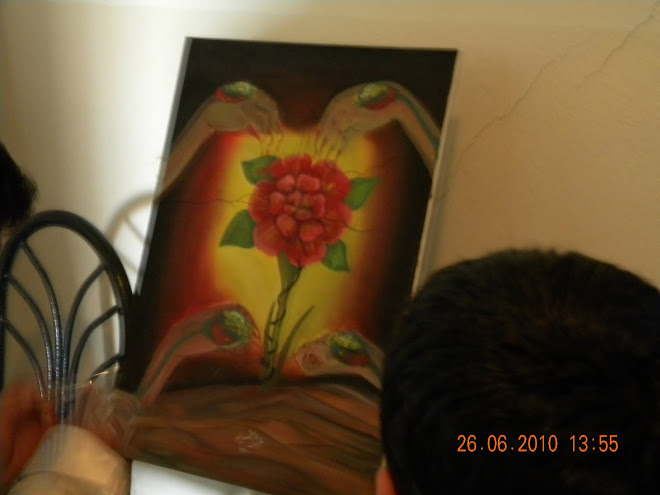.jpg)




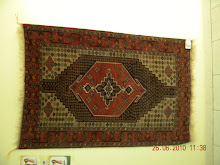.jpg)



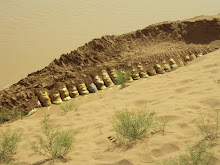




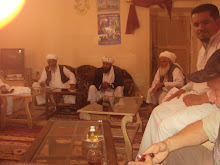
















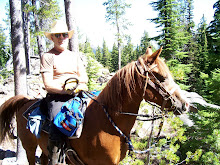



No comments:
Post a Comment